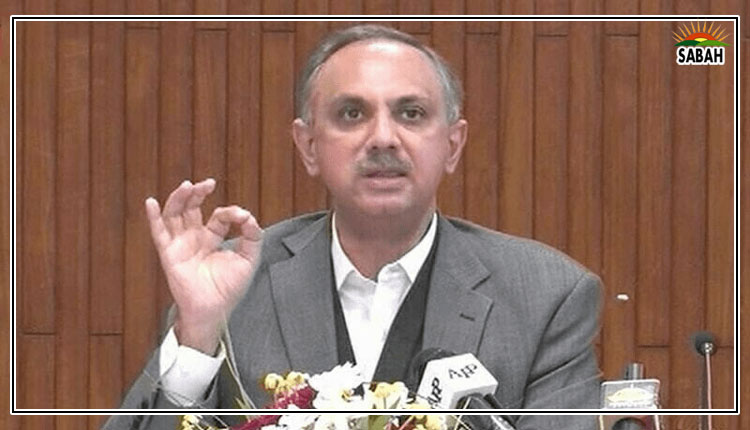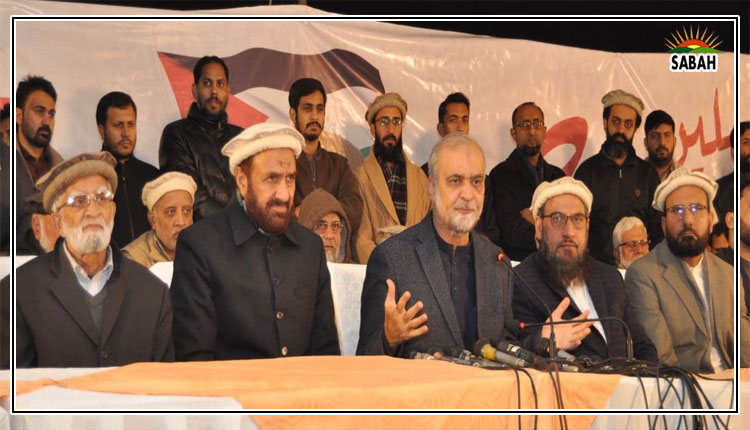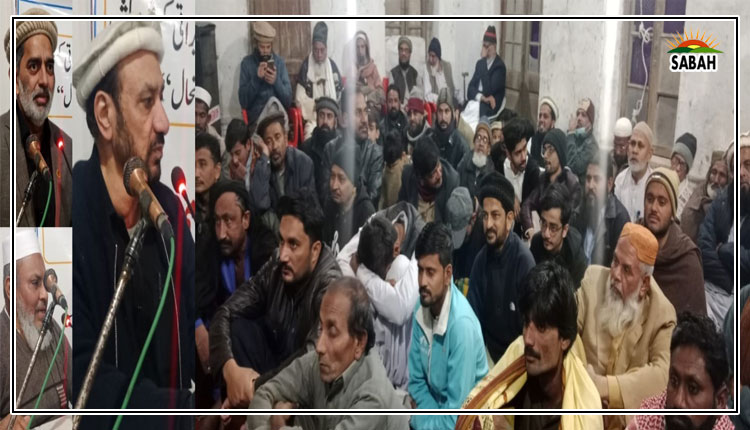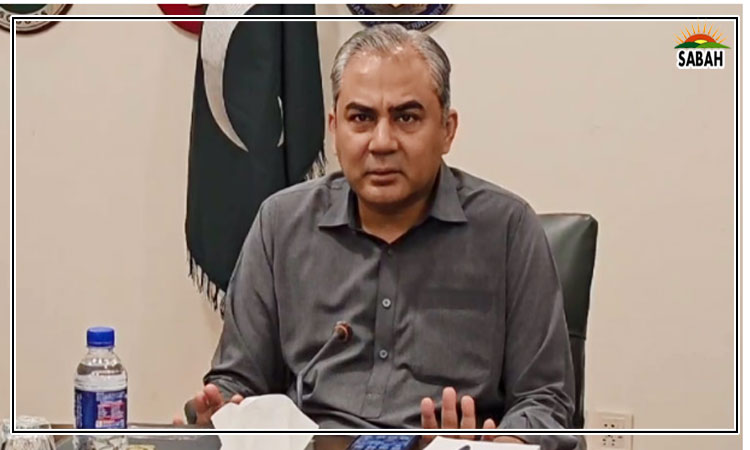If govt wants criminal proceedings in contempt case against Imran Khan, it should also understand its requirements: SC
ISLAMABAD, Dec 02 (SABAH): The Supreme Court of Pakistan on Friday while hearing the contempt of court case against former prime minister and Chairman Pakistan Tehreek-e-Insaf (PTI) Imran Khan regarding May 25’s ‘Long March asked as to why the federal government felt the need to file this petition and how the government was aggrieved party in the contempt of court proceedings.
A five-member Supreme Court bench headed by Chief Justice of Pakistan Justice Umar Ata Bandial and comprising Justice Ijazul Ahsan, Justice Munib Akhtar, Justice Yahya Khan Afridi and Justice Sayyed Mazahar Ali Akbar Naqvi conducted the hearing of the contempt case against the former prime minister. Imran Khan’s lawyer Salman Akram Raja, and the interior ministry’s counsel Salman Aslam Butt were present in the court. During the course of hearing, the court said it would take action if it considered it necessary as it has reports of law enforcement agencies.
During the hearing, Salman Akram Raja apprised the court that he has submitted a response to the government documents and will present Imran Khan’s arguments now.
Interior Ministry’s council Salman Aslam Butt said that the PTI chairman gave a call for D-Chowk on May 24. There is data proving that Imran Khan was aware of the Supreme Court’s orders and that they have submitted a USB with the PTI leaders’ statements, establishing their awareness of the Supreme Court verdict, he added.
During the hearing, Justice Sayyed Mazahar Ali Akbar Naqvi asked the counsel of the interior ministry, Salman Aslam Butt, “how could the ministry file an application in the matter which is already infructuous?” and maintained that the contempt matter is between the court and contemnor.
Justice Mazahar Naqvi questioned how they could distinguish the truth from the lie, adding that the Supreme Court is not a trial court that can record statements. The apex court said that the matter the application tends to has been rendered moot. He added that matter of contempt is between the court and the contemnor.
He further said that the court could issue a contempt notice in light of the agencies’ reports if needed. He questioned why the government felt like filing a contempt case against the PTI chief. It is the Supreme Court’s duty to carry out contempt proceedings if needed; the government can only offer assistance. The Interior Ministry’s argued that the contempt proceedings are a continuation of the top court’s verdict regarding the PTI long march’s entrance to the Red Zone.
The Chief Justice said that Imran Khan claimed there was chaos on May 25 and protesters were out of control. However, it looks like the PTI leader did not go to the D-Chowk himself but asked his supporters to do so, he added. “Let me make it clear that contempt of court proceeding is not for punishing anyone. Contempt of court action is to enforce court orders,” stated Chief Justice Umar Ata Bandial.
Justice Bandial also said that the PTI’s intentions were always to go to the D-Chowk, the PTI lawyers convinced the court that barriers were lifted. However, later they did not honour their commitment and turned to the D-Chowk, he added.
In his remarks, Justice Ijazul Ahsan said that PTI’s intention was to come to D-Chowk and that the party had assured the court to clear out the roads to the venue. “After clearing the way, [the] PTI reneged on its assurance and came to D-Chowk,” Justice Ahsan added.
However, Justice Mazahar Naqvi further remarked that the court will not be affected by what happened in the past. The ministry also submitted a written reply to the court, according to which PTI General Secretary Asad Umar had reached Imran on a helicopter during the long march and had given an assurance to the court at one o’clock.
It maintained that after the assurance, when participants were asked to reach D-Chowk, Umar was standing with Imran. “What is the proof that Asad Umar informed Imran Khan about the court order?” questioned Justice Naqvi.
He stated that if the government wants criminal action, it should also understand its requirements. Subsequently, the court adjourned the hearing of the case till next week.












